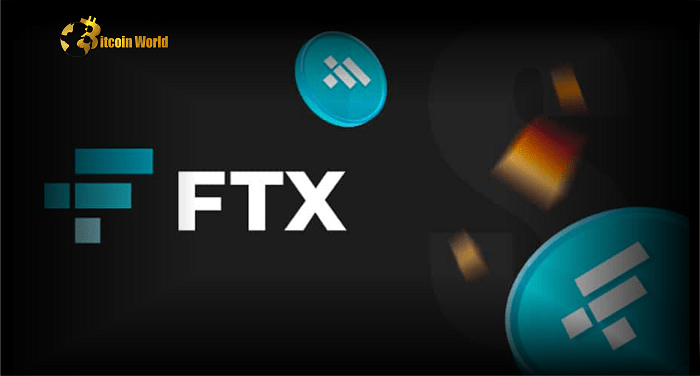The FTX saga continues to unfold, and unfortunately, the latest developments paint a grim picture for users hoping to recover their funds. What started as a liquidity crunch has spiraled into a full-blown crisis, significantly reducing the chances of customers seeing their money again. Let’s break down the dire situation and understand why the outlook is increasingly bleak.
Why is FTX User Fund Recovery Looking Increasingly Unlikely?
Several factors have converged to create a perfect storm, making fund recovery a monumental challenge:
- Massive Balance Sheet Black Hole: The bankruptcy filing revealed a shocking imbalance. FTX reportedly holds a mere $900 million in cash against a staggering $9 billion in liabilities. This gaping deficit alone signals a significant shortfall in funds available for user reimbursement.
- Devaluation of FTX’s Crypto Assets: A substantial portion of FTX’s assets, estimated at $5.5 billion, are considered “illiquid.” Crucially, $3.2 billion of this is tied up in digital assets like FTT, SOL, and SRM tokens. The problem? These tokens have plummeted in value amidst the FTX crisis, further eroding the already limited asset pool.
- $400 Million Hack Attack: Adding insult to injury, a massive $400 million hack occurred over the weekend following the bankruptcy. This illicit drain of funds further depletes the already scarce resources available for creditors, including users.
Essentially, the pie was already small, and now it’s been significantly reduced by both market devaluation and outright theft.
According to a Bloomberg report citing FTX’s bankruptcy petition, the stark reality is laid bare: limited cash, massive liabilities, and devaluing assets. Let’s delve deeper into the assets that are taking a major hit.
The Plunging Fortunes of FTT and SOL
Two tokens particularly hard-hit by the FTX fallout are FTT, the native token of the FTX exchange, and SOL, the token of the Solana blockchain, a project heavily backed by FTX and Sam Bankman-Fried.
FTT Token’s Dramatic Decline
The FTT token has experienced a catastrophic price crash. Consider these figures:
- Recent 24-hour Drop: FTT plunged another 40% in the last 24 hours alone.
- Intraday Swings: It swung wildly from a high of $2.09 to a low of $1.29 in recent Asian trading sessions, before a slight recovery.
- Weekly Collapse: The most devastating statistic? FTT has plummeted by a staggering 92.5% in just the past week!
Currently hovering around $1.68, FTT is a shadow of its former self. This dramatic devaluation significantly impacts FTX’s asset holdings, as FTT was a key component of their reserves.
Solana (SOL) Token Under Pressure
Solana’s SOL token is also feeling intense pressure due to its close ties with FTX. Here’s what’s happening with SOL:
- Recent Price Drop: SOL prices fell by 16% in a single day, reaching an intraday low of $12.28.
- Weekly Performance: Over the past seven days, SOL has lost over 60% of its value.
- Current Trading Price: As of writing, SOL is trading around $12.57.
Solana’s ecosystem, once vibrant and promising, is now grappling with the fallout from the FTX collapse. The significant price drop in SOL further diminishes the value of FTX’s holdings and adds to the overall financial strain.
What Does This Mean for FTX Users?
The situation is undeniably dire for individuals with funds locked on the FTX platform. The combination of a massive balance sheet deficit, devalued assets, and the recent hack significantly reduces the pool of funds available for distribution to creditors.
Key Takeaways for FTX Users:
- Recovery Prospects Diminished: The likelihood of recovering the full amount, or even a substantial portion, of your funds is significantly lower than before the recent revelations.
- Expect a Long and Complex Process: Bankruptcy proceedings are notoriously lengthy and complicated. It could be a long time before any funds are distributed, and the amount may be considerably less than what was originally deposited.
- Seek Professional Advice: If you have significant funds locked on FTX, consider consulting with legal and financial professionals to understand your options and navigate the claims process.
- Manage Expectations: It’s crucial to prepare for the possibility of substantial losses. While hope remains, realism is essential in this situation.
Broader Implications for the Crypto Market
The FTX collapse is not just an isolated incident; it has far-reaching implications for the entire cryptocurrency market:
- Erosion of Trust: This event has severely shaken investor confidence in centralized crypto exchanges and the broader digital asset space. Rebuilding trust will be a long and arduous process.
- Increased Regulatory Scrutiny: Expect heightened regulatory attention on crypto exchanges and the industry as a whole. Governments and regulatory bodies worldwide will likely push for stricter oversight to protect consumers and prevent similar crises.
- Market Volatility: The FTX saga has contributed to increased market volatility and uncertainty. The crypto market may experience further turbulence as the full extent of the fallout becomes clear.
- Focus on Decentralization and Transparency: This crisis may accelerate the shift towards decentralized finance (DeFi) solutions and emphasize the importance of transparency and self-custody in the crypto space.
In Conclusion: Navigating the Aftermath of the FTX Earthquake
The FTX collapse is a stark reminder of the risks inherent in the cryptocurrency market, particularly within centralized platforms. The path to user fund recovery is fraught with challenges, and the crypto industry as a whole faces a period of introspection and rebuilding. While the future remains uncertain, one thing is clear: the FTX saga will have a lasting impact on the crypto landscape, underscoring the need for caution, due diligence, and a focus on responsible innovation within this evolving industry.
Disclaimer: The information provided is not trading advice, Bitcoinworld.co.in holds no liability for any investments made based on the information provided on this page. We strongly recommend independent research and/or consultation with a qualified professional before making any investment decisions.




